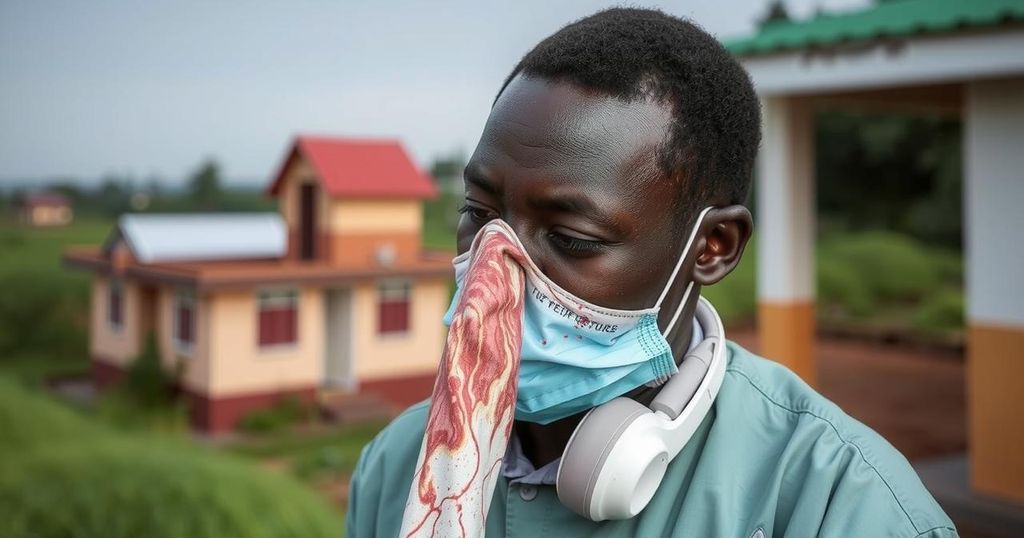Mysterious Disease Outbreak in Southwest Congo Affects Hundreds, Claims Lives
An undiagnosed disease in southwest Congo has infected over 400 individuals and caused 143 deaths since October, primarily affecting young children. The World Health Organization is investigating potential causes and mobilizing resources to address the outbreak. Limited access to healthcare in the remote Panzi health zone complicates response efforts amid rising food insecurity.
A significant outbreak of an undiagnosed disease in southwest Congo has left over 400 individuals infected since October, with health authorities reporting 143 fatalities, predominantly among children under five years old. The World Health Organization (WHO) noted that the disease presents flu-like symptoms such as fever and cough, severely affecting already malnourished patients. The ongoing outbreak, occurring in the remote Panzi health zone, has been challenging to address due to difficult access to medical care and supply chains, exacerbated by seasonal rains. Experts are investigating the potential causes, including respiratory viruses and other infectious diseases, but have yet to determine the exact nature of the illness. Local response teams are focusing on surveillance and improving healthcare access amid worsening food insecurity in the region.
In October 2023, a mysterious illness surfaced in the Kwango province of the Democratic Republic of Congo, raising concerns among health officials due to its rapid transmission and high mortality rate. The most affected demographic includes young children, especially those suffering from acute malnutrition. The region’s remoteness has hampered timely medical intervention and response, highlighting the critical need for improved healthcare infrastructure. Continuous collaboration between local officials and the World Health Organization aims to enhance the response to the outbreak, as understanding the disease’s mechanism is pivotal for effective treatment.
In summary, the outbreak of an unidentified disease in southwest Congo poses a serious public health threat, especially to vulnerable populations such as young children and malnourished individuals. Health officials, including the WHO, are mobilizing resources and rapid response teams to investigate and manage the situation, while the community faces challenges due to limited healthcare access and increasing food insecurity. Continuous monitoring and coordinated efforts are essential to mitigate the risks associated with this outbreak and to safeguard the health of affected populations.
Original Source: www.forbes.com




Post Comment